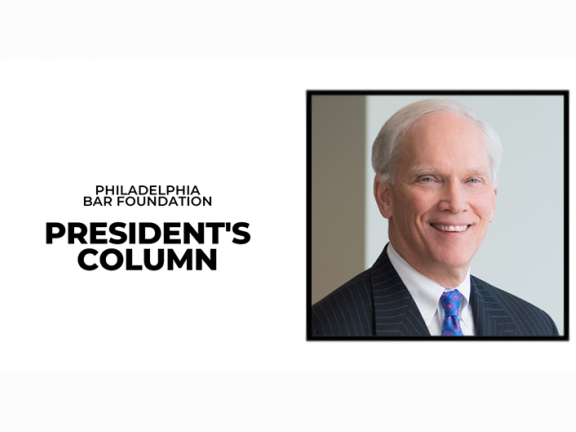Judicial Redistricting: A Very Bad Idea

By Wilson M. Brown III, Senior Counsel at Faegre Drinker Biddle & Reath LLP and President of the Philadelphia Bar Foundation.
Pennsylvanians will be asked this fall to approve state constitutional amendments that make major changes to our appellate courts. Asserting that there is a pressing need for greater “judicial accountability,” the Pennsylvania legislature has proposed that the Commonwealth’s appellate judges forsake their neutral black robes and become parti-colored partisans – representatives of regional constituencies and the politicians in those regions who command votes. The proponents don’t present the amendments this way, of course. But that’s exactly what they mean.
Today, Supreme Court justices and Commonwealth and Superior Court judges are chosen by all Pennsylvanians in statewide elections. Since these three courts’ decisions have statewide reach, it is logical their members should be chosen by and answerable to all Pennsylvania voters. These jurists are bound by their Code of Judicial Ethics to act with independence, integrity and impartiality. State law does not give them an incentive to do otherwise.
Tomorrow, however, if the legislature has its way, Pennsylvania will be balkanized into seven, nine or fifteen “judicial districts” (depending on the court) – each district gerrymandered precisely to assure the legislative majority party’s control and members of our highest courts thereafter elected by district. These judicial districts will be revised from time to time to reflect the desires of the then legislative majority – and, if need be, to re-district away jurists deemed insufficiently compliant or cooperative or simply inconvenient.
Our appellate judges serve ten-year terms, so this change may take a little while. But, for control over the state’s highest courts, our legislators have time. With existing staggered terms, anticipated retirements and further re-districting, a reliable majority on each court might take only two or three two-year election cycles.
So, these constitutional amendments are not about assuring our appellate judges are more accountable to the people. They are about rendering these judges accountable to politicians in the Pennsylvania legislature – the very politicians these judges are expected to “check-and-balance” under our state’s constitution. The amendments are about putting foxes in control of the hen house.
The legislature’s power play, if successful, will discredit our highest state courts. Justices and judges will be painted as “district representatives,” not neutral arbiters – jurists beholden to their “home” district and its legislators for their seats and, in “re-districting,” their continued tenure. An appellate court’s power to strike down a statute, to uphold or overturn a conviction, and to right injustices rests ultimately on that court’s credibility. When appellate judges are made accountable to politicians rather than the people for their seats and tenure, the judges’ credibility is forfeit.
This is a very bad idea. The Bar Foundation and the nonprofit legal services providers it supports believe a strong, independent judiciary and judicial system is essential to our democracy and to the future of Pennsylvania. Join us, and the Philadelphia Bar Association, in opposing these constitutional amendments at the polls in November.
